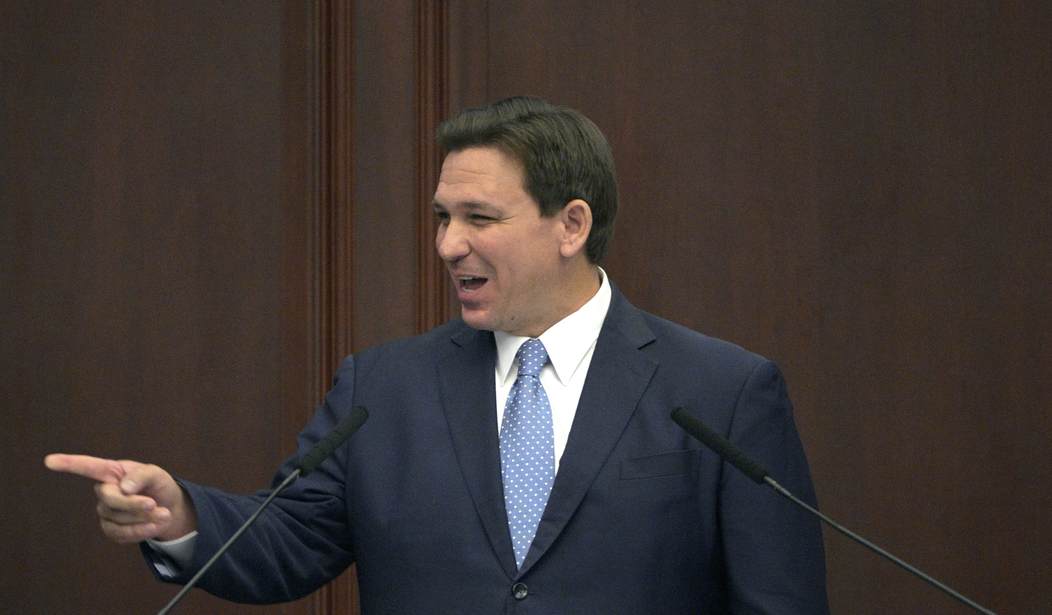(The opinions expressed in guest op-eds are those of the writer and do not necessarily represent the views of RedState.com.)
According to a new study titled “Final Report Card on State Responses to COVID-19,” states that implemented the least restrictive COVID-19 lockdowns performed far better than those that took the more draconian track.
The study, conducted by the Committee to Unleash Prosperity, found that “states which maximized the individual freedoms of business owners, consumers, workers and parents – and allowed their citizens to make their own risk assessments without government mandates – had the best performance.”
Moreover, the study notes:
“It turns out that in most cases, citizens living in states with minimal government interventions – including Nebraska, Iowa, Florida, and others – were able to make wise health-conscious assessments without an abundance of government rules and mandates. These states came through the pandemic with the least amount of collective damage to their economies, the education of their children, and with health outcomes that were in most cases no worse than states that used more heavy-handed tactics to slow the spread.”
On the other hand, as Stephen Moore, a co-author of the study said, “Shutting down their economies and schools was by far the biggest mistake governors and state officials made during Covid, particularly in blue states.”
The data absolutely support Moore’s conclusion.
Consider.
In the economic realm, the average unemployment increase for all 50 states and the District of Columbia during the pandemic was 2.8 percent. However, the states that kept their economies open fared far better than their counterparts. For example, Montana, Nebraska, and South Dakota experienced unemployment increases of 0.9 percent, 0.2 percent, and 0.7 percent, respectively. On the other side of the spectrum, the states that enacted long lockdowns suffered catastrophic unemployment increases, namely Hawaii (8.2 percent), New Jersey (5.5 percent), and New York (5.4 percent).
On the topic of education, the states that kept their public schools open for in-person learning also performed well above those that decided to close public schools for months. As the study notes:
“School closures may ultimately prove to be the largest policy error of the pandemic era in both economic and mortality terms. One study found that school closures at the end of the previous 2019-2020 school year are associated with 13.8 million years of life lost. An NIH analysis found that life expectancy for high school graduates is 4 to 6 years longer than high school dropouts. The OECD estimates that learning losses from pandemic era school closures could cause a 3% decline in lifetime earnings, and that a loss of just one third of a year of learning has a long-term economic impact of $14 trillion.”
Of course, this is even more maddening considering that COVID-19 posed little threat to children.
The third metric assessed by the study, mortality, shows that states that remained open did not experience higher death rates than compared to those that issued longstanding lockdowns.
Per the study, “locking down businesses, stores, churches, schools, and restaurants had almost no impact on health outcomes across states. States with strict lockdowns had virtually no better performance in Covid death rates than states that remained mostly open for business.”
By now, this should not come as that big of a surprise. A few months ago, Johns Hopkins released a similar study that found, “lockdowns have had little to no effect on COVID-19 mortality. More specifically, stringency index studies find that lockdowns in Europe and the United States only reduced COVID-19 mortality by 0.2% on average.”
It would be nice if the mainstream media reported these truths to the American public. However, that is far from likely given the fact that the vast majority of the media celebrated lockdown policies while berating governors and other elected officials who enacted less restrictive mitigation measures.
Chris Talgo ([email protected]) is senior editor at The Heartland Institute.













Join the conversation as a VIP Member